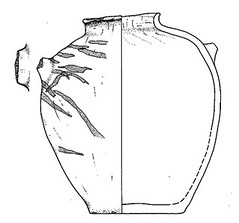ANCIENT MEDICINAL FERMENTED BEVERAGES
Chemical analyses of ancient organics absorbed into pottery jars from Neolithic China, ca. 7000 B.C., and others from the beginning of advanced ancient Egyptian culture, ca. 3150 B.C. have revealed that a range of natural products–specifically, herbs and tree resins–were dispensed by fermented beverages. These findings provide the first chemical evidence for the earliest medicinal treatments in the world, previously only ambiguously documented in ancient medical papyri and texts. They laid the foundation for traditional medicine in these regions, and illustrate how humans around the world, probably for millions of year, have exploited their natural environments for effective plant remedies.
The active compounds have recently begun to be isolated by modern analytical techniques. My laboratory, in collaboration with colleagues at Penn’s Abramson and Medical Centers, is now testing compounds in ancient fermented beverages for their anti-cancer and other medicinal properties in a new project called “Archaeological Oncology: Digging for Drug Discovery.” Our ancient ancestors had a huge incentive in trying to find any cure they could to cure mysterious diseases and extend their life spans beyond the usual 20-30 years. Over millennia, they might well have hit upon solutions, even if they couldn’t explain it scientifically. Superstition also crept in, but in certain periods, like the Neolithic, humans were remarkably innovative in domesticating and probably discovering medicinal plants. They were lost to future generations when the cultures collapsed and disappeared, but can now be rediscovered using Biomolecular Archaeology.

